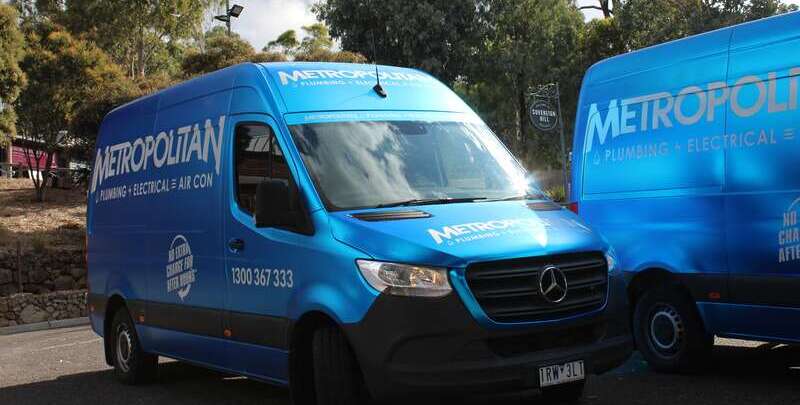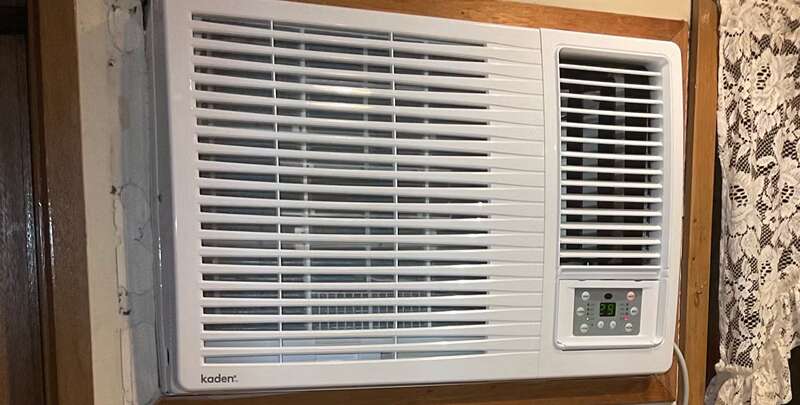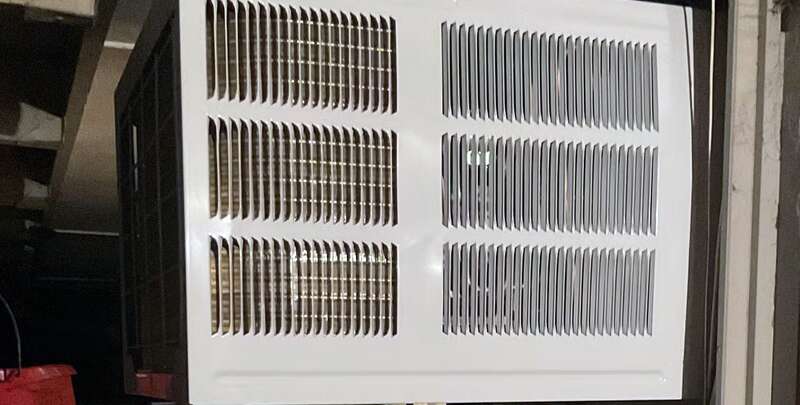
All You Need to Know About Window Air Conditioners
Do you need to chill in a small room or open space without breaking the bank? Window air conditioners are an effective and reasonably priced option.
Compact in size, they can easily cool spaces up to 50 square meters (m²) efficiently. This guide will teach you how to pick the suitable unit for your home this year. Proper installation also ensures it operates correctly for years ahead by identifying key components such as cooling capacity, energy efficiency, and essential features.
So, what makes window ACs (aka wall air conditioners) great choices economically speaking? They are not only affordable but offer quick and easy installation too, making them ideal solutions, especially if you’re renting.
And just like any purchase decision, there are plenty of options available on the market today – but that’s why we’re here: guiding our readers through factors such as room size (and other needs) towards choosing their perfect fit when it comes down to buying one of these units meant for keeping homes cooled off efficiently yet affordably at once.
Understanding Window Air Conditioners
Window-wall air conditioners offer efficient cooling for small areas, such as rooms measuring 50m² or less. They offer a more budget-friendly choice than split systems and window wall units because they don’t require permanent installation, and a single unit contains all their components.
These components, including a compressor, condenser, evaporator, expansion valve, fan, filter, control panel, thermostat, drainage system, and housing, are all compactly integrated into the same device.
When you’re in the market for a window air conditioner, it’s crucial to consider factors like its energy efficiency rating, noise level, temperature control capabilities, filtration features such as timers and remote controls, and any additional benefits offered by trusted brands.
While cost will always play a role in your purchasing decision, both in terms of the initial price and long-term savings from efficient usage, it’s essential to prioritise your specific needs when choosing the right solution from the available options, whether it’s wall air conditioning systems or more advanced window walls with built-in climate control technology.
Components and Features
Designers have created window air conditioners to cool a room efficiently. These systems consist of four essential components: the compressor, condenser, expansion valve and evaporator, each playing a vital role in transforming heated into cooled air before circulating it back through the space.
When selecting your window AC unit, compare all available features, including energy-efficient settings for electricity savings and advanced temperature control options or remote controls for added convenience and improved indoor air quality. Prioritise those that best suit your needs so they satisfy you entirely.
The ideal model should integrate cooling capabilities with other valuable features like heat filtration options, allowing it to adapt to specific environmental requirements as needed.
Benefits of Window Air Conditioners
Window air conditioners offer great benefits due to their relatively low cost compared to other AC systems. They can be installed easily and quickly in any household without extensive work, which is a bonus. These units are also relatively small, so they fit into areas with limited space, such as smaller rooms or open layouts.
Numerous advantages come with window air conditioning, including localised cooling, energy efficiency, adjustable temperature settings (for excellent/de-humidification purposes), easy maintenance and storage options if needed seasonally. It makes them ideal for people who want something affordable yet effective at combating heat waves.
They deliver the goods on heating and cooling and there’s a decent range to choose from. For these reasons, among others, it’s no wonder why more and more individuals have turned towards this type of system over the years. It allows them to enjoy pleasant temperatures without worrying about breaking their bank accounts.
Selecting the Right Window Air Conditioner for Your Space
Choosing the perfect window air conditioner for your space requires considering various factors.
Consider room size, cooling capacity requirements, window type and compatibility, noise level, and additional features when selecting an air conditioner. Given that these box air conditioners are often budget units, you might find some special offers at a discount store or reputable dealer.
Please consider its energy efficiency rating along with the ZERL label & savings when selecting one from all available options on the market.
Don’t forget about the manufacturer’s warranty, too, while opting out an AC unit, among other things like installation process and maintenance – both are necessary steps that would help ensure long-term use of this device at optimal performance levels, thus saving you money on bills over time if done right.
To assist users during selection, we aim to provide information regarding these elements so they can pick their ideal air conditioning system, considering every detail thoroughly up front for a successful setup afterwards.
Assessing Room Size and Cooling Capacity
When selecting a wall air conditioner, it’s essential to calculate the room’s square footage by multiplying its length and width.
With this information, you should choose an appropriate cooling capacity measured in British Thermal Units (BTUs) or watts that corresponds with your space size.
The following is a recommended capacity guideline according to area:
- Up to 46m² (150ft²) – 5000 BTU
- 46-76m² (150-250ft²) – 6000 BTU
- 76-91m² (250-300ft²) – 7000 BTU
- 91-107m² (300-350ft²) – 8000 BTU
Exceeding these measurements may require multiple appliances for practical use. Still, consider other factors, such as insulation levels and the number of windows, when picking the ideal solution for efficient cooling performance in any room.
Energy Efficiency and ZERL Label
The creators developed the Zoned Energy Rating Label (ZERL) to help consumers make well-informed comparisons among similar window air conditioners. It considers regional and seasonal weather variations that impact energy efficiency.
Familiarising yourself with and employing this label when acquiring a unit tailored to your requirements can result in long-term cost savings on your electricity expenses.
Also, consider looking at an AC’s EER rating and its Energy Star score – models with high ratings are more cost-effective options that reduce utility costs while helping the environment too.
Additional Features to Consider
It is essential to evaluate the features provided by different models of window air conditioners and select those that best fit your requirements.
Those units usually have programmable thermostats, air quality functions, remote controls, filter indicators and advanced technological solutions, all implemented to elevate your comfort level when using a cart.
Check noise levels and cooling capacity while comparing various systems so that you can pick an AC unit correctly to cool while making minimal sound pollution. Considering this will ensure finding the right window air conditioner that fits perfectly with your needs.
Regular Cleaning and Maintenance
A window air conditioner’s cleanliness and routine upkeep are essential to ensuring its consistent effectiveness. An important aspect to take care of is the filter that collects dust and dirt particles, which should be attended to by either shaking it off, using a vacuum cleaner or rinsing with water from the kitchen tap.
There are seasonal examinations and other maintenance procedures for your air conditioning unit, such as cleaning condenser coils, clearing humidifier drains, and inspecting seals and gaskets. Lubricating operational parts is necessary to preserve maximum efficiency levels while preventing potential damages if neglected over time.
What is the Maximum Area a Window Air Conditioner Can Cool Effectively?
You can easily install window air conditioners, and they offer an excellent, cost-effective solution for cooling spaces of up to 50m² or smaller.
They are ideal for those who want something other than the cost of installing central AC. Plus, they offer energy efficiency while still delivering reliable temperature control.
What are the Drawbacks of a Window AC?
Window-wall air conditioners present a variety of drawbacks, making them an imperfect choice for many homeowners. The placement of such air conditioning systems makes it difficult to guarantee security due to their visibility and access. They typically only fit specific window sizes and need easy access to power outlets, resulting in difficulties during installation.
Water drainage from these models can be inefficient and often create aesthetic issues with outside appearance – all without being sound-efficient either. All these expenses add up due to the pricey purchase fees and high operational costs on top of regular maintenance that must occur after completing the installation.
Other options are available instead of opting out for Window AC units, which could provide users more convenience while avoiding the risks associated with such products.
Install Your Window Air Conditioner Now
To choose a perfect window air conditioner for you in 2023, consider several components at the end of your journey. These can include energy efficiency, room size, and additional features such as cooling capacity. In contrast, other brands offer choices suitable for various needs or preferences, ensuring optimal comfort during any season.
Contact professionals and experts at Metropolitan Air Conditioning for their service in South Australia, Victoria, NSW, Queensland and WA if you want help with your window air conditioner installation.
To give customers complete peace of mind when making this decision, we have provided comprehensive information so they can pick out what works best based on their particular wants and requirements – enabling individuals’ living spaces to be relaxed yet cosy every day of the year.
Please note: This information is provided for advice purposes only. Regulations differ from state to state, so please consult your local authorities or an industry professional before proceeding with any work. See our Terms & Conditions here.
Published: 2023-09-21



































